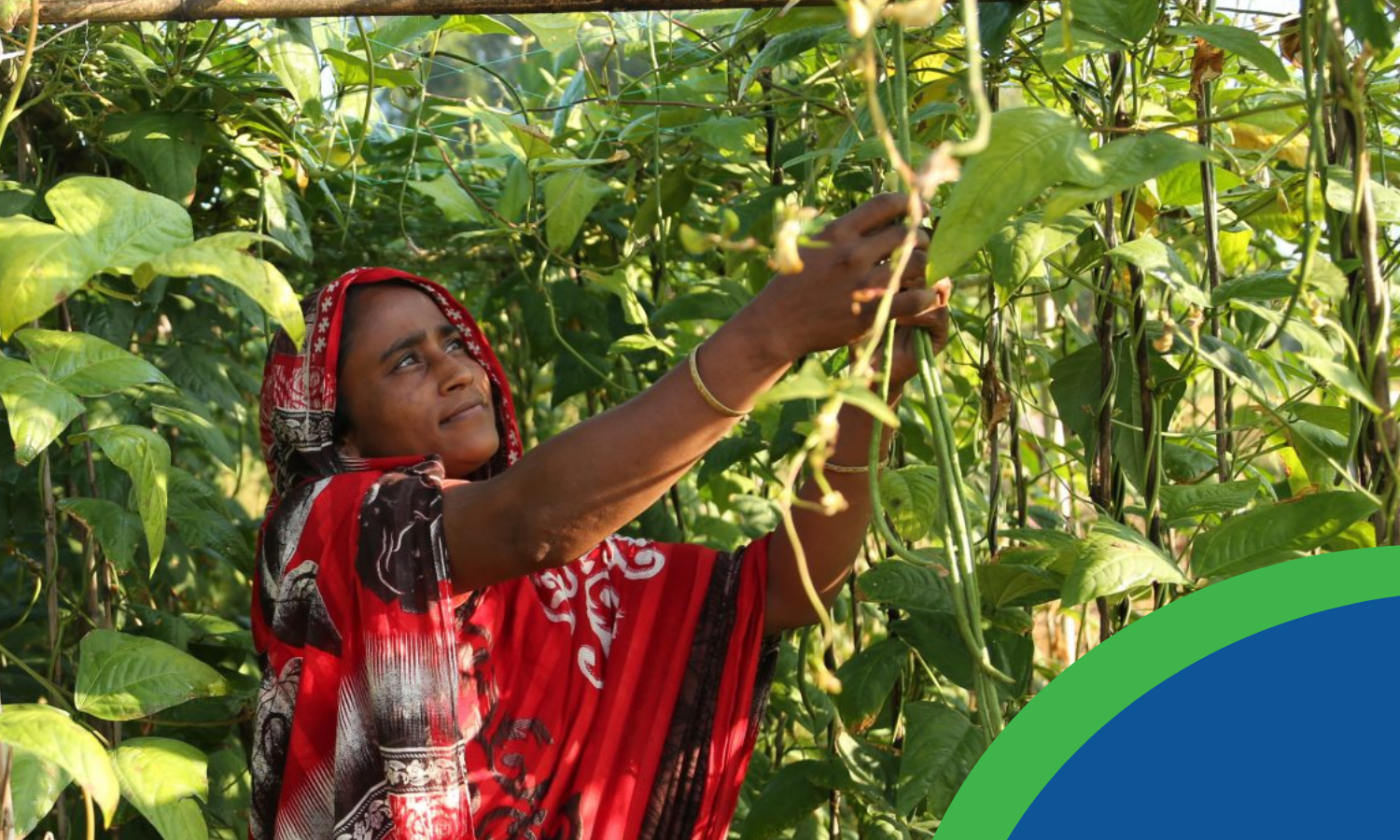Farming vegetables requires skill and expertise.
Preparing the soil, sowing the seeds effectively, and feeding the plants the water and light needed, is just the start of the process. Choosing the optimal time to harvest and transport crops to market is also crucial to avoid spoiled produce and ensure profit.
It’s complex, time consuming work, requiring intense manual labor.
The livelihoods of small-scale farmers across the globe replies upon their land, soil and the weather which surrounds them.
Variations in rainfall and sunshine can drastically impact crop yields, which in turn impacts a farmer’s income.
This reliance on nature makes farming in Bangladesh especially precarious, because Bangladesh is one of the countries most vulnerable to climate catastrophes.
“Climate change is the one of the biggest challenges we are currently facing,” says Rehana, a 30-year-old Bangladeshi farmer living in Ukhiya.
“I am a farmer and have been growing crops for decades. I grow bitter gourd, green and red chili and cucumber which normally takes 2-3 months to harvest.”
Rehana supports her family of six from what she can grow on a small parcel of land that she rents. She sells this produce at the local markets.

Bitter Gourds growing on the vine.
Rehana’s business model is common to hundreds of other small-scale farmers working in the Ukhiya sub-district of Bangladesh. These farmers face numerous issues with this model of farming.
Ukhiya is a remote area and local farmers often struggle to transport their goods the long distances needed to get them to market, and even when they do, some of these farmers do not have the connections with local retailers needed to sell their goods efficiently.
But the most pressing issue farmers like Rehana face is the impact of extreme weather, caused by climate change.
“The water level in my community has drastically declined. As a result, the quality of production has decreased over the last couple of years,” says Rehana.

A decrease in production invariably leads to a drop in income for families reliant on the sale of their produce.
This is exacerbated by frequent floods, droughts, riverbank erosion, and cyclones; extreme weather events that regularly hit Bangladesh.
To help combat these issues, and support farmers across Ukhiya, RI, together with the World Food Program, launched a project to create more economic opportunities for local farmers.
The project trains local farmers in techniques to maximize the yield of their vegetable crops.
It includes teaching on every aspect of the production chain; from cultivation methods, seed treatment, land preparation, fertilizer application, and irrigation, to pest control, harvesting, preservation for transportation, and basic book keeping practices.

RI staff training local farmers including Rehana.
Farmers also learn how to grow more resilient crops that are less susceptible to the impact of extreme weather.
Coupled with this hands on training, the project also enhances the links between farmers and retailers, forming stronger supply chains that make it easier to transport and sell crops.
Over one thousand people, including over 750 women, have benefited from this project to date; helping increase crop yields and income alike for everyone involved, while also helping to fight the impacts of climate change.
“My income has increased since my participation in Relief International’s program,” says Rehana.
